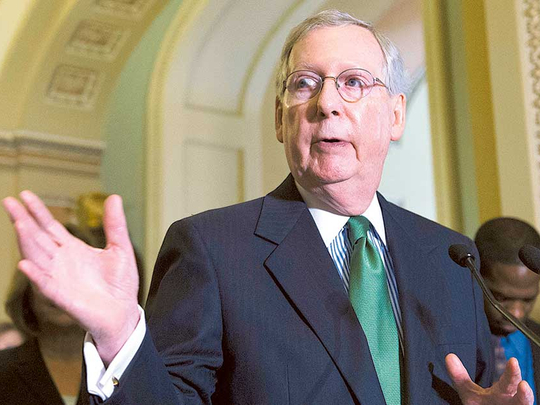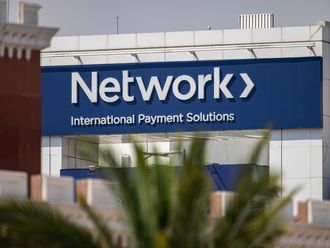
Washington: US exporters including Boeing and General Electric won’t be able to obtain new financing for overseas deals from the US Export-Import Bank starting Wednesday.
The situation may be temporary as Congress, which left town last week for a weeklong recess without preventing the lapse in the bank’s charter, may consider reauthorising Ex-Im in July.
Pending applications for Ex-Im financing total more than $9 billion (Dh33 billion), according to the bank. The House and Senate won’t return until next week, making it inevitable there will be at least a short gap in the bank’s ability to approve applications for financing.
“It’s hard to believe Ex-Im is going to lapse, but we are,” Fred Hochberg, Ex-Im’s chairman, said in a speech last week. “The damage caused by this debate has already cost real Americans their jobs and harmed long-term US global leadership.”
Senate Majority Leader Mitch McConnell of Kentucky, who is opposed to reauthorising the bank, has said he’ll allow its supporters to combine legislation to extend it with a highway funding bill expected to be considered in July.
“Our hope and expectation is that this will be one of the first things considered” when Congress returns from its break, Aric Newhouse, senior vice-president for policy and government relations at the National Association of Manufacturers, said during a conference call Tuesday.
Congress can reauthorise the bank and promote American businesses or “shut down the bank and put manufacturers on their back heels and put Americans out of work,” Newhouse said.
The fight has pitted two Republican constituencies against each other. The US Chamber of Commerce has pushed hard to reauthorise the bank, contending it supports US jobs. Small government groups including the Club for Growth argue that Ex-Im should end because it interferes with the free market by choosing which deals receive financial backing.
Floor vote
The lapse is a “small step” toward ending “cronyism” in which some US companies benefit from the federal government’s aid and others don’t, said Rep. Jeb Hensarling, the Texas Republican who is chairman of the House Financial Services Committee. “Where is the fairness in giving Washington politicians and bureaucrats the power to pick who gets helped and who gets hurt?” Hensarling said in a statement.
Bank backers have struggled to get a floor vote on the issue because top Republicans including McConnell, House Majority Leader Kevin McCarthy of California, and the two committee chairmen with oversight of the bank — Hensarling and Senate Banking Chairman Richard Shelby — oppose extending Ex-Im’s charter.
Don Nelson, president of ProGauge Technologies Inc, an oil industry equipment-maker in Bakersfield, California, said he has met with McCarthy to tell him that the US would lose jobs if Ex-Im disappears. “He’s just totally ignoring what we’re telling him,” Nelson said during a conference call. “I believe he just doesn’t care because it doesn’t fit with his political agenda.”
The Senate strongly backed reauthorising the bank in a June 10 test vote, which McConnell has said demonstrated there is enough support in the chamber to extend Ex-Im’s charter. That 65-31 vote sought to keep alive a proposed amendment to extend the bank’s charter, though the amendment was withdrawn after the roll call.
Ex-Im, renewed without controversy for decades, has become a target of conservative Republicans including Hensarling who say it benefits only a few large corporations that don’t need government assistance.
Five public US companies — General Electric, Boeing, Caterpillar Inc and units of General Dynamics Corp and United Technologies Corp — had overseas customers who received about $10 billion in loan authorisations or long-term guarantees from the bank last year.










